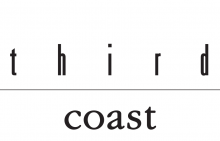Hello Third Coast Readers! I hope you are enjoying this busy month of renewal, which appears to be halfway over already. Despite the perpetually quickening pace of life, this swift passage of time has not caused us to forget the acknowledgment of International Women’s Day, celebrated on March 8th. Last week, gratitude was expressed to countless mothers, friends, sisters, and significant others for their contribution to the lives of so many.
As a brief history lesson in itself, Women’s History Month was officially established in 1980. The first march in Washington D.C. for women’s suffrage occurred in March of 1913, and in March 1917 the National Women’s Party was formed. March contains the birthdays of women such as Ruth Bader Ginsburg, Flannery O’Connor, and Simone Biles. Women are increasingly being awarded Oscars and Billboard awards, which both have ceremonies in March. In addition, I find it fitting that March contains the first day of Spring, and aside from the cliché association between women and birth, there is something about a woman that brings life to whatever environment surrounds her.
Throughout history, women have worn many hats. We are mothers, friends, sisters, and significant others. We have careers and hobbies. No matter what life circumstances we find ourselves in, it is easy to feel fractured by the variety of spaces that we exist in. In honor of Women’s History Month and the incredible achievements that we accomplish daily, whether big or small, collectively or individually, I chose to share Mónica Gomery’s poem, “The Poet Considers If Her Body Belongs to Her,” from Issue 51. It serves as a reminder of the many spaces we occupy, the power of autonomy, and the importance of taking care of ourselves in the midst of our daily responsibilities. To quote Michelle Obama, “Here’s to strong women: may we know them, may we be them, may we raise them.”
— Logen Crandall, Editorial Intern
The Poet Considers If Her Body Belongs to Her
By Mónica Gomery
In the mirror some edges taper off
into light, light-filled sound. Here
are great waves of breath riding into
and leaving the body. Doors spin
on their built-in revolvers, the opens
and shuts of you. Take a breath.
Everyone cycles through.
Mostly the body is exits, arrivals.
Mostly on-ramps, back doors, trap
doors, fire escapes. Red carpets
rolled out on sternum and tongue.
Mostly mailboxes, runways, trade port
and train station. Skin cells stacking
for decades like bricks into doorways
and archways, gateways and courtyards.
The body may be less like a house
and more like an airport––
organ of transit, fluorescent
at dawn. An airport, no matter
the hour, is a churning.
In the mirror breath stills the filled body
but it is not only breath that enters
and leaves. It is dust, streetlights
and rages. Secrets and weather. Voices
of metal and earth, other names, other people
altogether, arrive and depart, land and take off.
How many brutal and generous citizens,
tourists of the body, built this coming
and going thing of clutter and silence––
every scrap, every linoleum tile
belonging to all of its architects, all
of its authors. How many travelers,
cellists sliding wheeled
instruments down lit corridors,
belonging to no one
or everyone, belonging to
anyone who has laid a hand
at her edge.
Mónica Gomery is a rabbi and poet. Her work explores queerness, diaspora, ancestry, theology, and cultivating courageous hearts. Mónica serves as Rabbi and Music Director at Kol Tzedek Synagogue and on the faculty of SVARA: A Traditionally Radical Yeshiva. She is also a co-founder of Let My People Sing! With the writer Moriel Zecher-Rothman she currently hosts the 5-3-5 poetry salon in Philadelphia. She is grateful to work with incredible teams of people on these projects committed to intergenerational healing and cultural, political, and spiritual transformation. More information about Mónica and her achievements can be found here.
